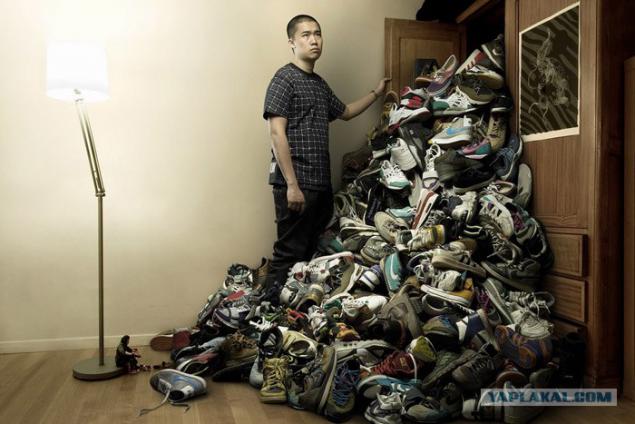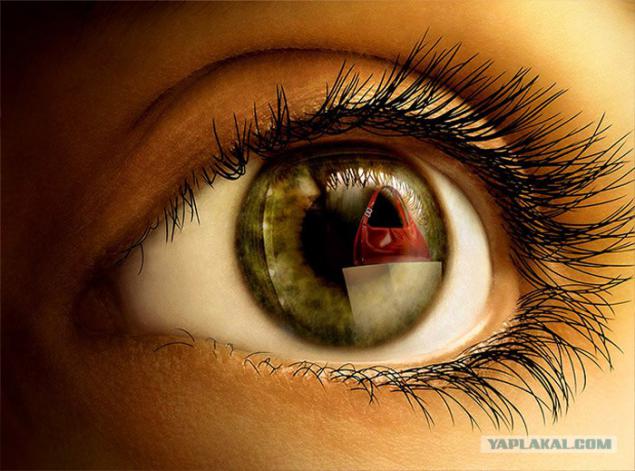831
Advertising should die?
Creative Director Sorec-Media, a well-known blogger and author of an interesting lecture on the most unexpected theme Dmitry Chernyshev told the Public Chamber, why do not need advertising.
- Timur Bekmambetov had a theory: in the early 90's, when everyone in the country was bad when the empire split off pieces, when every day the media reported about a new contract killing when the shelves were empty, and millions of people were out of work ... it's advertising He saved the country from complete collapse, chaos and civil war. Because only in advertising were smiling and happy faces.
Advertising - the motor trade and the locomotive of the economy. And let's try to imagine what would happen if tomorrow any advertising (television, radio, outdoor advertising in the press and on the Internet, et cetera) will be prohibited. We remember that the USSR was practically do without advertising, but what happens in a capitalist (or with respect to the capitalist) society? Who will lose and who will benefit from this?
The fact that advertising takes a few extremely harmful to society things.
Author - Dmitry Chernyshev, creative director Sorec-Media

Firstly
Advertising makes people to buy a huge amount of it completely unnecessary things. Yes. The man is very notorious and awe-inspiring creature. And manufacturers of products that use.
Who will suffer: manufacturers a huge number of unnecessary garbage that are solely dependent on advertising - for example, Coca-Cola, a means for weight loss and hair growing fashion industry, manufacturers fryers and fondyushnits (see how much stuff you have in your apartment, you used a couple of times and then removed on the mezzanine). Heavy blow will be inflicted on the pharmaceutical business - nine-tenths of the advertised medications are at best a placebo (remember that advertising of prescription drugs is prohibited).
Who will win: the consumer. It will save a huge amount of time, money and effort.

Second, the goods become cheaper.
For example, the cost of perfume or disposable blades at least 50% - advertising costs. Only the United States spends annually on direct advertising of more than $ 160 billion. (For comparison - Roscosmos promises of $ 40 billion. To send a man to Mars). Where will this money go? Ways of promoting the producers will be a bit: first of all - to improve the design and quality of the product. It would be extremely highly valued opinion and customer loyalty. And it will be impossible to close the defects in the goods vibrant advertising campaign.
An important question - what will happen to those who are very dependent on advertising? For example - the TV. Television will be paid. But you can watch a movie that is not constantly interrupted by advertising blocks.
And the appearance of cities greatly benefit from the fact that thousands of billboards disappear.
And thirdly - the most important thing.
Advertising is actively changing the world. And change it for the worse by planting extremely harmful stereotype: the illusion that happiness can be bought (that is not the case, we can see just by comparing the face, for example, our deputies with people, say ... Nepalese beggars).
Total: total ban on advertising intensity rat race (to consume, consume, consume) will decrease. Number of manufacturers of disposable unnecessary nonsense shrink - and the planet's resources is not unlimited. We all win.
Of course, a little bit sorry for advertisers. What a pity cabs, water carriers and manufacturers of punched cards.

Source:
- Timur Bekmambetov had a theory: in the early 90's, when everyone in the country was bad when the empire split off pieces, when every day the media reported about a new contract killing when the shelves were empty, and millions of people were out of work ... it's advertising He saved the country from complete collapse, chaos and civil war. Because only in advertising were smiling and happy faces.
Advertising - the motor trade and the locomotive of the economy. And let's try to imagine what would happen if tomorrow any advertising (television, radio, outdoor advertising in the press and on the Internet, et cetera) will be prohibited. We remember that the USSR was practically do without advertising, but what happens in a capitalist (or with respect to the capitalist) society? Who will lose and who will benefit from this?
The fact that advertising takes a few extremely harmful to society things.
Author - Dmitry Chernyshev, creative director Sorec-Media

Firstly
Advertising makes people to buy a huge amount of it completely unnecessary things. Yes. The man is very notorious and awe-inspiring creature. And manufacturers of products that use.
Who will suffer: manufacturers a huge number of unnecessary garbage that are solely dependent on advertising - for example, Coca-Cola, a means for weight loss and hair growing fashion industry, manufacturers fryers and fondyushnits (see how much stuff you have in your apartment, you used a couple of times and then removed on the mezzanine). Heavy blow will be inflicted on the pharmaceutical business - nine-tenths of the advertised medications are at best a placebo (remember that advertising of prescription drugs is prohibited).
Who will win: the consumer. It will save a huge amount of time, money and effort.

Second, the goods become cheaper.
For example, the cost of perfume or disposable blades at least 50% - advertising costs. Only the United States spends annually on direct advertising of more than $ 160 billion. (For comparison - Roscosmos promises of $ 40 billion. To send a man to Mars). Where will this money go? Ways of promoting the producers will be a bit: first of all - to improve the design and quality of the product. It would be extremely highly valued opinion and customer loyalty. And it will be impossible to close the defects in the goods vibrant advertising campaign.
An important question - what will happen to those who are very dependent on advertising? For example - the TV. Television will be paid. But you can watch a movie that is not constantly interrupted by advertising blocks.
And the appearance of cities greatly benefit from the fact that thousands of billboards disappear.
And thirdly - the most important thing.
Advertising is actively changing the world. And change it for the worse by planting extremely harmful stereotype: the illusion that happiness can be bought (that is not the case, we can see just by comparing the face, for example, our deputies with people, say ... Nepalese beggars).
Total: total ban on advertising intensity rat race (to consume, consume, consume) will decrease. Number of manufacturers of disposable unnecessary nonsense shrink - and the planet's resources is not unlimited. We all win.
Of course, a little bit sorry for advertisers. What a pity cabs, water carriers and manufacturers of punched cards.

Source:























